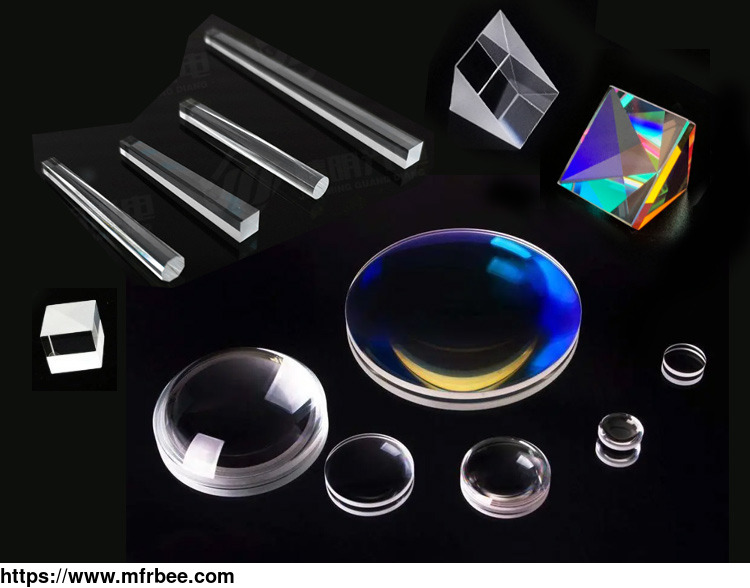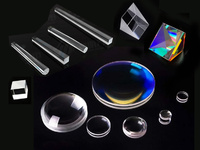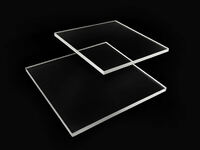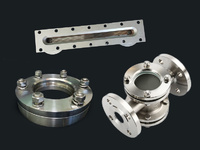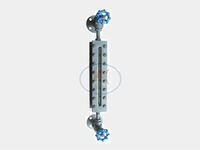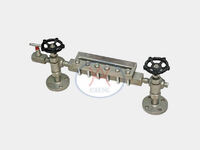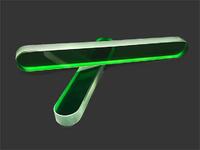Optical Glass
Specifications
Optical glass, also known as optical lenses or glass lenses, is typically categorized as plano-convex (PCX), double-convex (DCX), plano-concave (PCV), or double-concave (DCV) lenses. They are commonly made from materials such as soda-lime, borosilicate, and quartz, with diameters varying from 1mm to 300mm and tolerances held to within ±0.1mm. Distinguished by their scratch resistance, these lenses are easy to clean and maintain due to their polished, smooth surfaces that resist oil and chemical contamination. Notably, quartz glass lenses boast a high light transmittance rate of up to 95%. These lenses are essential in various domains including daily life, science, education, and industry, being integral components in lights, cameras, microscopes, telescopes, and collimators, among others.
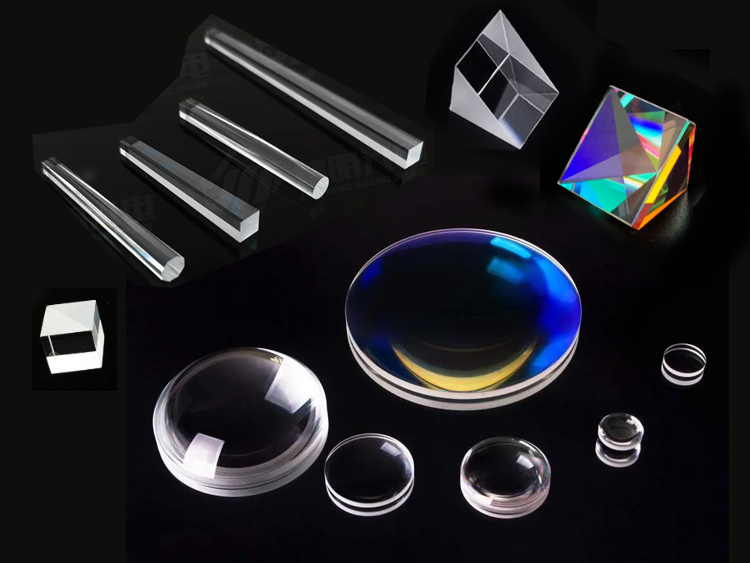
Advantages:
Chemical Stability and Easy Maintenance: The glass material’s anti-corrosion properties make it easy to clean and maintain.
Precise Tolerance: With over a decade of experience in optical glass manufacturing, we can tailor tolerances to meet your needs, even achieving minimal values for high-precision applications.
Surface Covering: Our surface coverings assist in anti-reflection and filtering.
Applications:
Magnification: Convex lenses serve as magnifying glasses, aiding in the observation of minuscule objects.
Education: Optical lenses play a significant role in physics and are widely used in schools for educational purposes.
Instrumentation: Medical, biological, and astronomical instruments such as microscopes, telescopes, and collimators frequently employ optical lenses.
Photography: Glass lenses are integral to the imaging process in cameras.
Lighting: Optical glass aids in light manipulation, concentrating or scattering rays for specific purposes.
Specifications:
Classification: Optical lenses are categorized as plano-convex (PCX), double-convex (DCX), plano-concave (PCV), or double-concave (DCV).
Material: These lenses are made from soda-lime, borosilicate, or quartz.
Diameter: Ranges from 1-300 mm.
Diameter Tolerance: Maintained within ±0.1 mm.
Thickness Tolerance: Controlled within ±0.1 mm.
Curvature Radius Tolerance: Usually ±0.5, but can reach ±0.1% in precision applications.
Centration: Less than 3 minutes of arc.
Clear Aperture: Over 90%.
Beveling: Below 0.2 × 45° or as per requirements.
Refractive Index: Between 1.4 and 1.6.
- Country: China (Mainland)
- Business Type: Hebei Hengshui Aohong Technology Co.,Ltd
- Market: 非洲,美洲,亚洲,新兴市场,欧洲,欧盟,G20,中东,大洋洲
- Founded Year: 2008
- Address: 161# Ronghua Street, Taocheng District, Hengshui, Hebei, China
- Contact: Feng Wang
